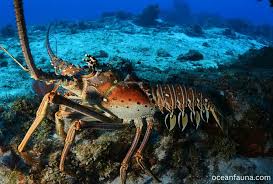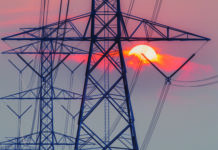The effects on sealife of magnetic fields caused by electricity cables running on or under the seabed are probed in a new scientific study out today.
Crown Estate agencies managing state assets associated with Britain’s coastal shelf have shelled out for research into fields’ impact on crustacean behaviour, fish reproduction and crab wellbeing.
Downloadable here, the report ‘Electromagnetic Fields from subsea power cables in the natural marine environment’ examines ways of measuring the impacts of such fields on marine life.
Plotting and measuring the fields created by subsea cables is also a featured topic. The report lays out short and longer-term recommendations on improving research in this “field”, aimed at securing greater sharing of evidence.
The study was conducted by experts at the Centre for Environment, Fisheries and Aquaculture Science (Cefas), a unit of DEFRA.
Fish and ships; (it’s Friday…..)
Squids in for £1.4 million to fund four reports in total, Cefas lead the acqueous research under the Crown Estate’s Offshore Wind Evidence and Change Programme (OWEC), its objects including taking the piscatorial pulse of Britain’s coastal waters, including consequences of power waves, electrical as well as fluid.
Assessing the turbine-turbot interface in these islands’ oceans and the scales of any related fissures in understanding are key concerns of the schools of scholars contributing to the report.
Angling to ensure that no insights got way has been a concern.
The Crown Estate says it is committed to work with and support trawlermen and fishing communities in research, enabling better coexistence between fish, fisheries, and the UK’s offshore wind sector.
Olivia Thomas, the agency’s head of marine planning cited Tim Pick, the UK’s offshore wind champion.
“Pick highlighted that a lack of reliable data is a major contributor to delays in the consenting process”, she observed. That’s why the work of the £50million Offshore Wind Evidence and Change (OWEC) programme is so important”.
“Through OWEC, we are delighted to make this pioneering research possible. It contributes to a growing body of evidence to support the co-existence of vital industries such as fishing and offshore wind, to help the UK meet its net zero targets, and to encourage a thriving marine environment.
“It is another step forward in building a sustainable offshore wind industry in the UK which is based on the very best data and evidence, for the benefit of all.”




